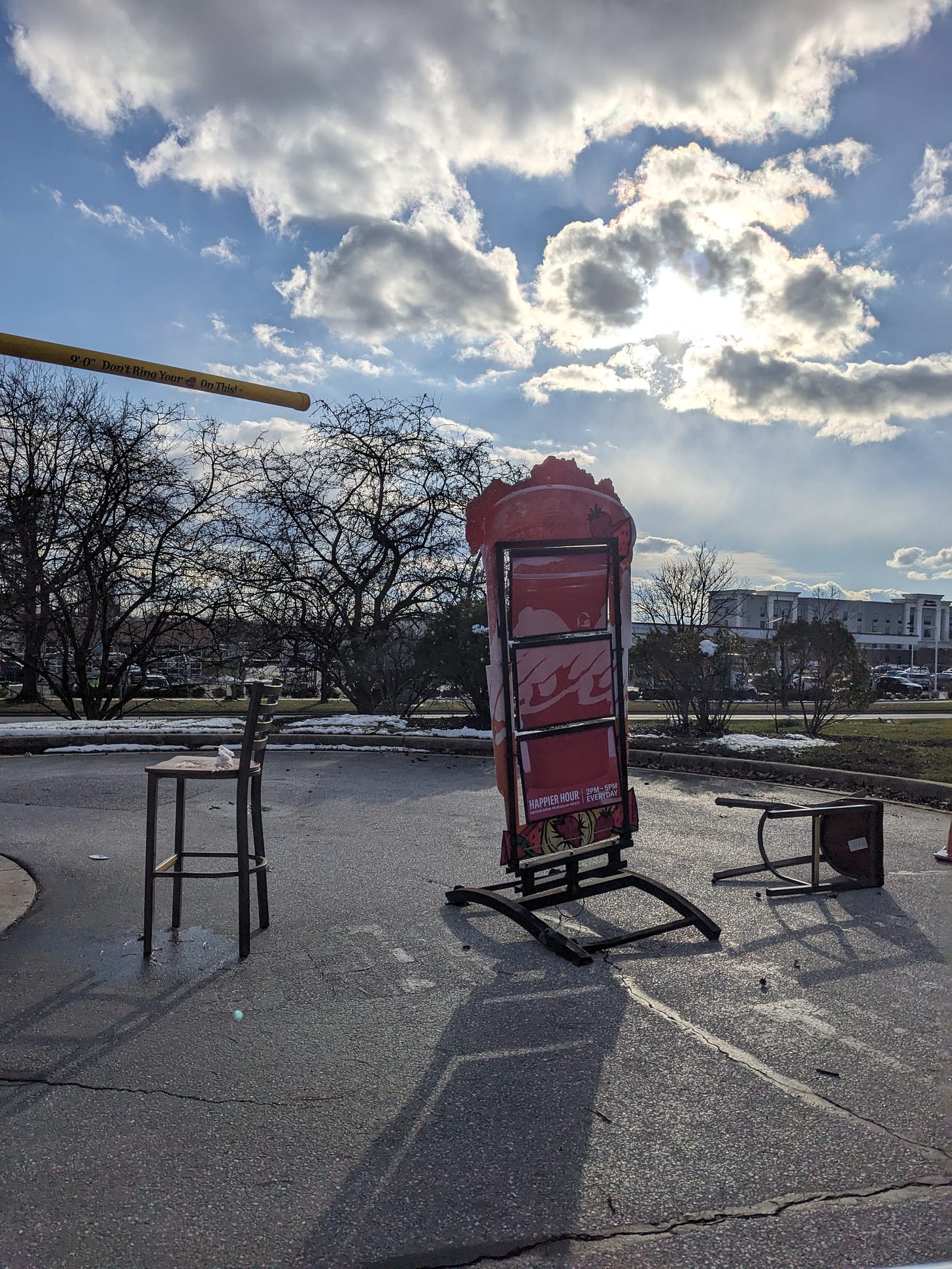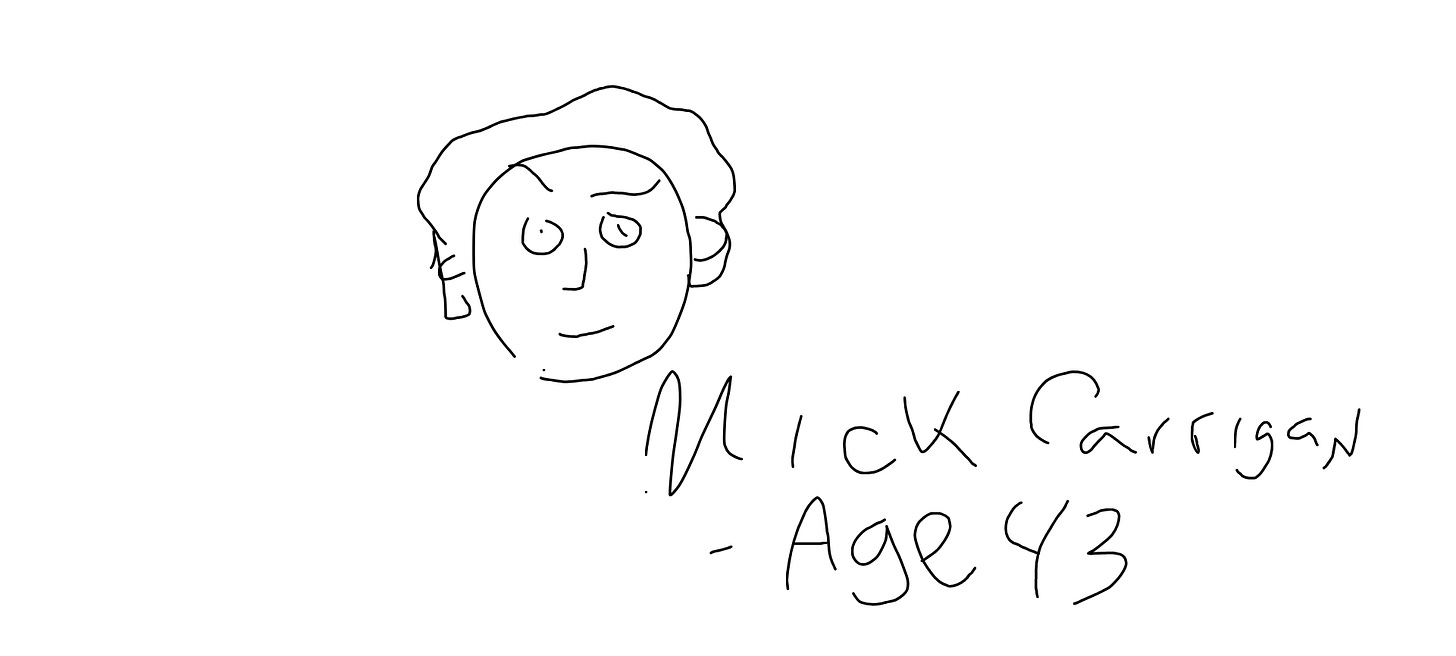

Discover more from Taco Bell Quarterly
My favorite local Taco Bell was one that hadn’t been remodeled yet. It was still in its late 90s baby cantina era, with the orange and brown hues streaked everywhere like a preteen in thick mascara. I liked this location because the managers defied the corporate overlords by not playing the official Taco Bell Aesthetic Station, but rather their own 5 disc changer mix, which was always a great mix of Motown and R&B. They had recently upconverted the counter to the new self-ordering tablet screens, which stood out like anachronisms in the space.
Then a few months ago, the remodeling wave finally came for them. I felt the chill of grim reapers and global brand chief executives in the air as “the brand looks ahead, planning for an ever-evolving future.” The outdated high top chairs blocked the drive-thru like barricades to the bean burritos. It felt ominous.
Last year, during the three months we were open, we received nearly 3,000 submissions. I was in no way mentally prepared for the popularity. As the notoriety started to cross into meme territory, I did a lot of drugs and became slightly manic. Then I got a book deal, and it did not solve a single one of my problems, and instead only amplified all of them. “The book will not save you” should be among the writing advice they teach you in the classes.
Then the remodeling wave arrived for me. I came out as trans at age 42, and more recently started HRT at age 43. I include my age because I’m proud of it like a 6-year-old who just drew a picture, and because it’s not too late for you, either.
Before I came out as a Taco Bell literary magazine, before I came out as a writer named M.M. Carrigan, before I came out as a guy named Mick, I was ______. I was a Mad Lib* of myself, filling in the blanks with words I switched in and out while I was bored in the backseat on a road trip to nowhere: an androgynous genderqueer genderfluid gay person who doesn’t view their gender in that way, who identifies, for feminist reasons, as someone who is a bipedal mammal, a partner, spouse, a parent who prefers these marbles pouring out to avoid saying any actual thing out loud.
I just wanted to be a writer. If I could not live as myself, then perhaps I could exist as this voice in my head. Yet as a writer, I found myself similarly nonexistent. I was an anonymous blogger writing under a screenname that commenters assumed was a guy. If any friends who read the blog asked me about it, I explained it as “the narrator in my head feels like a guy,” as if my gender was an element of fiction.
In workshops, a critique of my work was that there were no characters in my stories. They had no wants, no desires, no purpose. Who is telling the story, students would ask in ways that felt like demands. Why is it even being told? It felt like more than the usual awkward advice, and instead, I had to answer to existential questions about why I’m even doing this.
Being a writer requires a body of some sort: not just a body of work, but a human body with a head, smiling in headshots on the back inner flap, and a body with a head was already too much body for me. I was a free-floating voice in negotiation with fractions of self, an avatar in search of parasocial relationships to explain myself, a narrator who could not tell their own story. “You’re getting better at this,” a professor said once, in a moment I can never tell is patronizing or sincere.
I first tried on gender neutral pronouns in 2020, when the New York Post covered the second issue of the lit mag, even explaining in parenthesis that I used they/them pronouns, in case anyone in the audience was confused by my sudden plurality. I was confused most of all. I had never considered the mag blowing up to the point that I would even have to put my face on it. I was in my baby cantina era, still new to putting my own name on my work, M.M., with full stop periods in between each one like barricades to former selves.
I discovered transitioning has a lot in common with creative writing. It is the book that will not save you, and the story you have to tell. You actually began writing it a long time ago, you just didn’t realize it. The narrator being a guy in my head was the first step in a long creative process filled with setbacks and edits. The early drafts and versions and selves are rough, awkward, painful in their nakedness, forever in search of a way to get out of their own way, blind to their own traps. And that’s if any of it ever makes it past the gatekeeping, the rejections, and the inner critic before you even dare to fill in a single word.
_____.
It’s not a linear process. I have a constant urge to construct a timeline, to put it in an order, to bind it together and put it in a beautiful jacket and call it a finished book. One day. I plot myself along the bits and pieces I collect—the “woolgathering” of the process, looking for inspiration everywhere, in remodeling Taco Bells, in photographs, in new fictions I invent, and in songs that I listen to on repeat, trying to find out who the guy is, some guy named Mick.
TBQ7 is on the horizon. I’m excited to say we’ve accepted 32 pieces, and I’m looking forward to putting the issue together. We pay $100 per piece and if you subscribe to the newsletter, the money goes to our contributors! Stay tuned, as we’ll be opening for TBQ8 for a capped number of submissions in the coming weeks/months. Stay up to date with us on X and here and where ever else I might find a way to shout into the void.
*I borrowed the Mad Lib prompt from a brilliant writer, friend, and TBQ contributor, Jiordan Castle, and her memoir-in-verse, Disappearing Act, which is available everywhere books are sold! It’s beautiful and poetic and you should read it!
Subscribe to Taco Bell Quarterly
Updates, dread, and writing inspiration from the most Literary Magazine of all time






I almost never comment on newsletters, but I am happy as hell for you, and that seemed worth typing out.
You're one of my favorite bipedal mammals who can write! I follow your tweets but am glad to find you here in long form. I write about joy and kindness, hope and healing, and tell people to be kind to one another. But you know what? It doesn't amount to a pile of diablo sauce packets if you're not kind to yourself. Take a break and rest as long as you need. Getting burnt out doesn't make anything better.